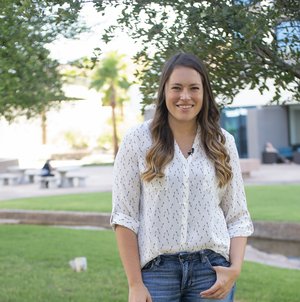In this episode, we go over 10 key terms that you need to know during the home buying process.
The first two terms that we’re going to go over today are terms I hear all the time being used interchangeably, but they’re actually very different. The first one is pre-qualification.
1 – Pre-Qualification
So, before you even start looking at homes, you should at least obtain a pre-qualification. A pre-qualification just means you’ve had a basic conversation with a lender. They may or may not have run your credit, and they’re going based on stated income and basic answers to questions. There hasn’t been any verification of employment, assets, or debts, yet. This is a good place to start; however, this does put you at a disadvantage. Anybody and their dog can go online and get a pre-qualification for a mortgage nowadays. Just because of the convenience that people demanded, big banks made it very easy to obtain them. The reason this puts you at a disadvantage is because you don’t actually have a realistic picture of the kind of terms that you can qualify for because you haven’t gone through the full pre-approval process.
2 – Pre-Approval
A pre-approval basically means that you have had that conversation with a lender, and they may or may not issued you a pre-qualification, but you’ve also sent in the documents that they needed in order to verify your employment, your income, and they’ve gone over your credit report with you. This doesn’t really take much more time, but it gives you a very realistic picture as to what kind of terms you’re looking at. The lender I recommend always does this ahead of time. It takes them less than 48 hours and then the buyer is well informed on the lending terms from the very beginning. Be wary of those big banks who quote you different things over the phone, or online, based on a pre-qualification.
3 – Showings
Anyone who’s watched HGTV can kind of determine that showings mean showing a house; but, you may not some key things that go into it. When you walk into a home, a lot of Realtors will try to get you to focus on things like pink color or the kind of faucets or fans that are in the house. What you really need to be looking at is the layout, the flow, how the home will work for day-to-day activities, and how the home will work for your needs.
4 – Offer
Now, after you’ve looked at homes, narrowed it down, and decided which one is best for you, that’s when you would make an offer. An offer is where your Realtor fills out the purchase contract for the home based on the initial terms that you want to offer. But, when it comes to writing the offer, you should really make sure that your Realtor has done their research on the property and can give you good, solid recommendations on where you should come in for your offer. They should be able to predict to some length where the seller will come back and prepare you for that process.
5 – Under Contract
Once negotiations are completed, you go under contract to purchase the home as long as both parties have agreed. Under contract basically just means that all parties have agreed to the terms and now you are committed to buying the home. Your Realtor can go over the intricacies of different situations and contingencies that could arise and prevent you from buying it after that point. But the most important thing is that once you’re under contract, no one else can swoop in and take that home from you.
6 – Closing Costs
Closing costs are not covered by the VA. There are programs out there that would give you a grant toward closing costs, but I never recommend these programs unless it’s a very specific situation because they come with very unfavorable rates and terms. So, be prepared to see these closing costs. Your Realtor should be able to give you a very accurate picture of what you could expect in closing costs.
7 – Earnest Money Deposit
The earnest deposit is due within 48 hours of going under contract. It is held at the title company and the earnest deposit is a kind of ‘in good faith’ money. It means that you’re a serious buyer and you intend to purchase the home. Earnest money can go towards closing costs or prepaid homeowner’s insurance and other things that might crop up during the transaction. A lot of agents and lenders will tell you it’s ‘your skin in the game’ and you shouldn’t expect to get it back. There’s a market standard for every area, your Realtor should be able to make a recommendation for earnest deposit. Sometimes the seller has a minimum earnest deposit requirement because the earnest deposit serves to show how serious of a buyer you are. It can actually strengthen or weaken your offer, so be sure to get guidance from your Realtor on what amount would work best in every scenario that you offer on.
8 – Title Company
The Title Company acts as a neutral third party that helps to coordinate the sale of the home between the lender and the buyer. They’re going to be running the complete title history of the property and they’re going to be coordinating with the HOA. The Title Company also holds the earnest deposit in your escrow account.
9 – Escrow
Escrow simply refers to that time period between going under contract and closing on a home. You will decide the close of escrow date when you write an offer, but it can be negotiated with the seller because they might require a different day. Once that closing date is decided by all parties though, it is very difficult to change.
10 – Signing/Closing Day
A lot of people interchange, or think that signing occurs on the close of escrow or closing date; it doesn’t. There’s always the goal of getting the documents wet ink signed prior to the close of escrow date. All this means is that you’re signing, with a pen and a notary present, or with a power of attorney, all the documents of the transaction. When you go to pick your close of escrow date in the very beginning, keep that signing in mind and make sure your realtor goes over the specifics and what options you have. Your closing day doesn’t actually require a whole lot of involvement on your part. On closing day, all the signed documents get sent to the lender. Once the lender receives all of them, they fund the loan; so, they basically pay for the house. Once that happens, the title company gets everything together and sends it to the State Department to record the deed. Once the deed records, your Realtor should get a notification, then they should congratulate you and let you know that you’re a homeowner and coordinate getting you your keys.
Thank you so much for tuning in, I know this episode was crammed full of information. We went over ten terms and little ones in between as well. Do you have any further questions on the home buying process? Please, don’t hesitate to message me, I want to answer them!
Thank you again for tuning into the #AskJulieC Real Estate Show and we’ll see you next time!






